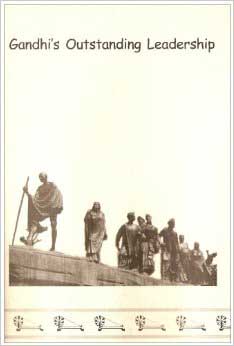

 |
| Nazareth's book has recently been translated into Chinese. |
Nazareth, however, finds scores of examples to define and defend the strength of Gandhi's leadership, from his ability to embrace Muslim and Christian Indians to his effective use of the basic needs of the poor-salt and clothing-to rally the masses to peaceful resistance.
Today, Nazareth says, "China's economic development has brought about some deleterious social effects. China is currently facing extreme consumerism. China has many shining cities but it also has distress in the countryside." Gandhi's philosophy, he says, offers hope to bridge such a divide.
"Three-fourths of the miseries and misunderstandings in the world would disappear," he quotes, "if we step into the shoes of our adversaries and understand their standpoint." Nazareth invokes independent India's first president, Jawaharlal Nehru, to describe Gandhi's impact: "His voice was somehow different from the others. It was quiet and low and yet it could be heard above the shouting of the multitude; it was soft and gentle and yet there seemed to be steel hidden away somewhere in it ...We did not quite know what to make of it but we were thrilled."